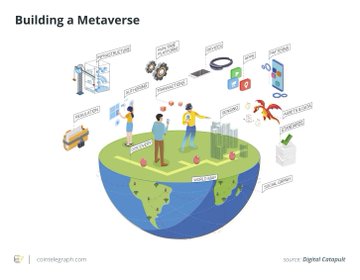
The metaverse space is moving rapidly in terms of hype and the volume of new projects being launched — so much so that the industry market size is projected to grow from $100.27 billion in 2022 to $1,527.55 billion by 2029. But how many of these new projects are even remotely capable of realizing the actual vision set out?
We’re a long way from seeing a true metaverse
Many of the metaverse projects that have been launched are in the world of gaming. However, more often than not, these projects simply consist of standard gaming features combined with virtual reality and NFTs. A true metaverse, in the sense of a digital parallel universe to our analog world, a digital simulated reality in which participants can take part in diverse social, economic, entertainment and artistic activities in a variety of self-organized groupings and environments, has yet to be realized.
Realizing this full vision requires easy portability of users, numerous wildly diverse metaverse shards, and simple user construction of new places and spaces — a vision that we are still developing the technology for.
Related: Here’s how the Metaverse enables inclusivity for genderqueer people
One underappreciated fact about the Metaverse is that it fundamentally needs artificial intelligence woven in at its core in order to provide a lasting user value proposition. Mark Zuckerberg clearly realizes this, but the majority of crypto-world entrants into the space are far less AI-oriented. But how exactly will AI improve the Metaverse?
